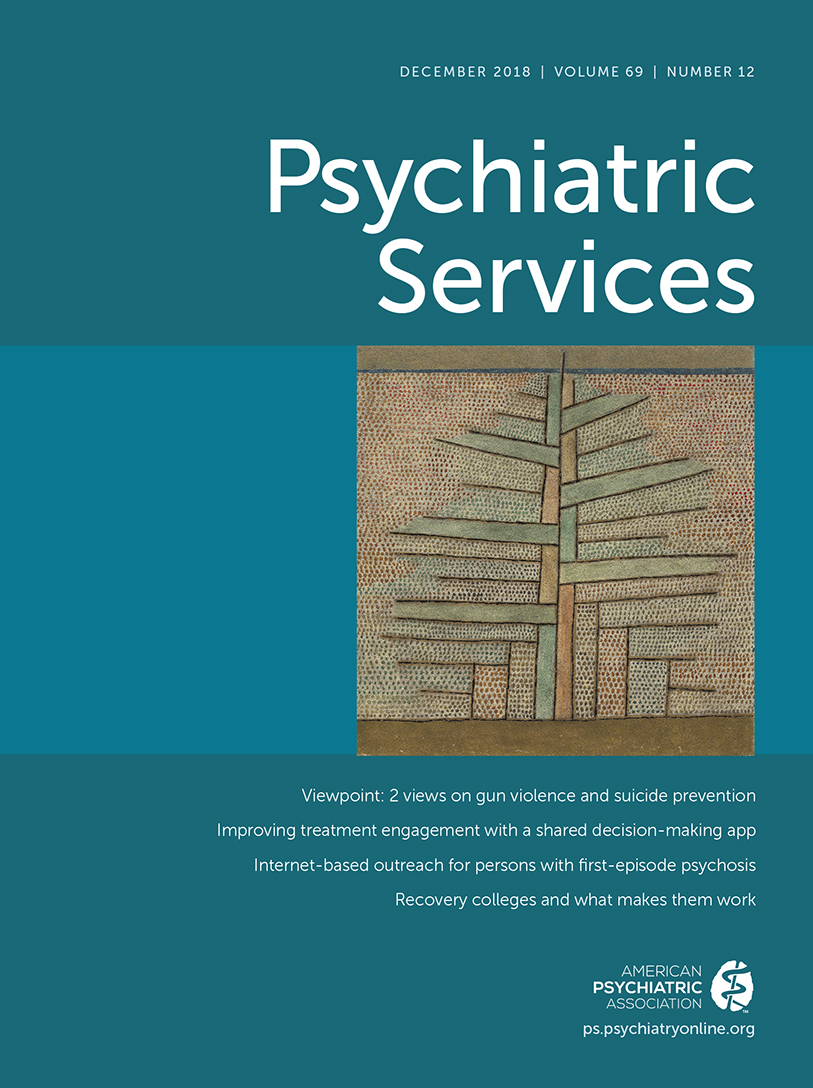Use of a Web-Based Shared Decision-Making Program: Impact on Ongoing Treatment Engagement and Antipsychotic Adherence
Abstract
Objective:
The authors examined the impact of a Web-based shared decision-making application, MyCHOIS–CommonGround, on ongoing outpatient mental health treatment engagement (all users) and antipsychotic medication adherence (users with schizophrenia).
Methods:
An intervention study was conducted by comparing Medicaid-enrolled MyCHOIS–CommonGround users in 12 participating mental health clinics (N=472) with propensity score–matched adults receiving services in nonparticipating clinics (N=944). Medicaid claims were used to assess ongoing treatment engagement and antipsychotic adherence (among individuals with schizophrenia) one year prior to and after entry into the cohort. Multilevel linear models were conducted to estimate the effects of the MyCHOIS–CommonGround program over time.
Results:
No differences during the baseline year were found between the MyCHOIS–CommonGround group and the matched control group on demographic, diagnostic, or service use characteristics. At one-year follow-up, engagement in outpatient mental health services was significantly higher for MyCHOIS–CommonGround users than for the control group (months with a service, 8.54±.22 versus 6.95±.15; β=1.40, p<.001). Among individuals with schizophrenia, antipsychotic medication adherence was also higher during the follow-up year among MyCHOIS–CommonGround users compared with the control group (proportion of days covered by medication, .78±.04 versus .69±.03; β=.06, p<.01).
Conclusions:
These findings provide new evidence that shared decision-making tools may promote ongoing mental health treatment engagement for individuals with serious mental illness and improved antipsychotic medication adherence for those with schizophrenia.



